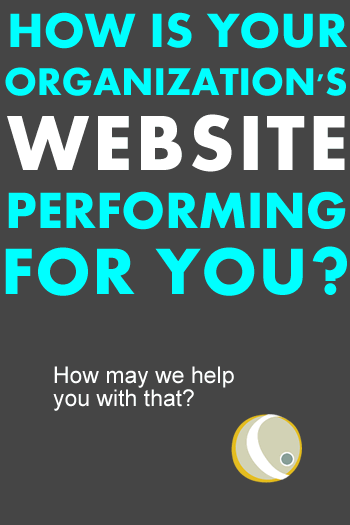Tips for Working Remotely for your Nonprofit Organization
A Nonprofit Professional’s Advice to Working At Home
Author’s note: This is a reposting of an earlier article. I felt it is especially relevant now with COVID-19 making nonprofit professionals work at home.
For more than 20 years, I’ve worked “remotely” for nonprofit organizations. At first it was termed: “work at home”, which would mean anything from my newly installed workstation in the den/eating area of my 1 bedroom apartment, to one of the three coffee houses anchored at the traffic circle within a two-minute walk from my home. (In no time at all, it would become “work anyplace on earth but the organization’s office”.)
At the AIDS services organization where I was employed as their newly created web marketing person, I was afforded the opportunity to come and go as I pleased, as long as I had met my department head’s expectations. Utilizing a modified, more concentrated, work week, I worked on the organization’s web presence and printed collateral at home three days a week and would go to the office once a week for meetings and to remind my co-workers that I did indeed actually exist. I was in heaven. I no longer had to waste time in cross-city traffic, nor spend anytime whatsoever choosing the proper work attire. “Casual Friday” was every day.

Working Remotely is Good for All
Over the years, work-at-home has become less of a quirky employment perk and more of a necessity as nonprofit organizations struggle to keep talented staff from seeking employment within the private sector—where pay packages tend to be higher . Many people who work remotely do so because of family necessity or other extenuating circumstances (e.g.: having no choice because of pandemic circumstances). Or, simply, they are willing to trade more income for a more holistic working life that affords more “me time”. This is usually a win-win situation for both the organization and the employee. That is, if the employee can maintain the necessary discipline and production required to sustain the adapted work environment. It is my hope that my experience will help the reader see some of the lesser known issues and pitfalls working remotely. And since the benefits of working remotely are already well known and celebrated, I shall dwell on the troublesome part of working remotely and how to compensate for it. But first, the obvious benefits of working remotely:
The Pros
- Flexibility in real-time work schedule. Your job is usually not 9-5, allowing you to complete your tasks within the gaps of a more nuanced work day.
- No commutes through traffic. This alone will save you from unproductive, stressful, hours every week.
- No more runs to the dry cleaners. Wear what you want, even if its pajamas all day long.
- All the comforts of home. Say adios to eating at Taco Bell because you can’t spare the time for a proper sit-down lunch at a restaurant. Make your own tasty lunches from your own kitchen, play the music you like to hear. Bring your dog to work!
The Cons
- Working by yourself isn’t for everyone and can be a major adjustment. Not having co-workers around, for example, may limit your social life, as well as minimize your potential to learn and apply new ideas and techniques that better your work performance.
- A new set of distractions. If you are a parent with a child at home part or all the time, you will be challenged to maintain your focus on the paid job at hand.
- Self motivation/discipline. With no one looking over your shoulder, and fun day-time opportunities at your door, maintaining your strong work ethic will be challenged.
- Lack of proper tools and an ergonomic work environment. You may not have the laser printer, photo copier, software, and other office tools at hand like you do at the office. Also, the office is more likely to have set you up in a proper desk and chair that will help stave off carpal tunnel syndrome, and/or neck and back problems.
How to Maintain Your Alertness and Work Ethic Away from the Organization’s Office
 Be it at your makeshift at-home office, which can be anything from a dedicated room that mirrors the office you are forgoing at the organization, or the squat table and beanbag seat clustered near the opening into your bamboo hut on a beach in Bali you are currently calling “home”, you need a proper working environment to get the job done.
Be it at your makeshift at-home office, which can be anything from a dedicated room that mirrors the office you are forgoing at the organization, or the squat table and beanbag seat clustered near the opening into your bamboo hut on a beach in Bali you are currently calling “home”, you need a proper working environment to get the job done.
Sure, working from the local coffee house or your kitchen’s counter can suffice in a pinch when the task is simple and not requiring a lot of focus and thought, but trying to conduct your business this way regularly is both unwise and unproductive. You need a place that isn’t a vortex of distraction, be it from ambient noises, to the lure of multi-tasking non-work activities into your work time. You need to respect your working environment just like you would expect co-workers to leave you alone during focus time at the office.
Disciplining Yourself Within Your New, Alternative, Work Environment
You would think that staying focused on the job you are getting paid to do would be the hardest part of working at home. That’s not always the case. In addition to maintaining self-governance, you will need to be mindful to:
- Not over working. Just because you have a brainstorm at 11PM and your office doubles as a bedroom, does not mean you should take your laptop out of sleep mode and start outlining project plans when you should be slipping into a well deserved slumber. Respect your “office hours”, be them 9-5 or 5-9. You will need to define and maintain a division between work and personal time. (Your spouse/partner will certainly appreciate it.)
- Avoid at-home distractions, and too much multi-tasking. Studies have proven, time and again, that constant multi-tasking does not achieve better results in the long run. Stay disciplined to your task at hand. Complete it, and move on to the next in your own good pace and flow. Tell the kids to hold off on any non-urgent discussions until your scheduled “break time”.
- Be hyper punctual. Just because you don’t have to punch a clock does not mean you are not obliged to maintain schedules and appointments. Don’t sleep in every morning just because you can. If you have a 10AM conference call scheduled, don’t be fumbling for your headset while testing your Skype connection at 9:59. And if it’s a video conference, be mindful of your appearance and environment: hair combed, pants on, and non-distracting backdrop.
- Keeping “office hours”. A lot of nonprofit professionals are either working part-time, as volunteers, or they are accustomed to spending a day or more working remotely. Therefore, it is important to maintain predictable office hours. You will want your supervisors, staff, or board members to feel comfortable contacting you during those times when you are working remotely. In other words, people should not feel as if they are intruding—as if they were calling you at home—when you are working at home.
Optimize your Working Environment
I’m considered a digital nomad: a person who works remotely—but on an elevated level. But maintaining a separate office space/room, with all of the proper furniture and office peripherals, is generally not afforded to me. But this does not mean that I don’t take time to create a choice work place or maintain an ergonomically comfortable working space—or that I don’t keep my tools (software) up to date. If my apartment/flat (hut) does not have a proper working space, I create it. Not only do I want a visually pleasing work space, I need it to be a healthy one.
- Ergonomics 101. If the table that you have is higher than 26in/65cm tall, then you may need to correct the height issue so that you don’t feel strain on your body—especially to your wrists.
- If you find that you are experiencing pain in your arm and neck, you might want to replace your mouse with a trackball.
- Get a good chair. Your kitchen chair is no better for your body ergonomically than the kitchen table which is too tall for long-term keyboard work. Spend a little money on a good steno or desk chair with adjustable seat height and arms. This may be the best office investment you will make.
- Take time to exercise. Stretch your hands, arms and legs often. Go for a bike ride or run when time permits (which may save you the cost of a gym membership).
- Keep your tools updated. Buy or subscribe to the software and computer applications you need. Whatever your nonprofit profession is, you need to have those tools at your ready:
- from the ubiquitous computer software, like Office 365, to Raiser’s Edge. Plus, you may need additional applications to interface well with your co-workers.
- but, you may not need to keep a laser printer, copy machine, or scanner on premises. Know where your local out-put service centers are and their hours of availability, and you should be fine.
- Maintain easy and reliable means of communications. You should have email, telephone (just keeping a mobile phone is fine these says), Skype (or “Skype to Phone”) account, Messenger and a conference call service.
- You don’t need to work alone, all the time. If you have neighbors or local associates that are also working remotely, you may wish to organize shared working space and/or days to create a balance between work-at-home and a traditional office environment. For digital nomads, there are “co-shared offices” and other similar shared working spaces that take working remotely to a whole new level.
- Be responsible. Not just reliable—that’s a given. But, keep a back-up of your files and equipment. Remember, you need to keep back-ups of your work files for safe keeping. This can be done using a good cloud service, or via a backup drive. But also, you will want to have a backup computer in case your primary one is in need of repair.
Working remotely is a great way to live. I know that I can’t imagine ever working any other way. It simply takes a little more self-discipline than you may normally be used to, and you will have to be able to take care of “office emergencies” since you are not likely to have an IT person at your beck and call. Be sure to take enough time for yourself, but make sure that you are doing your job as expected, or better!—just as if you were down the hall from your co-workers.
Richard Hamel is the founder of Dot Org Web Works and the co-author of The Nu Nomad: Location Independent Living.


 Patricia Prudente on Unsplash.com
Patricia Prudente on Unsplash.com